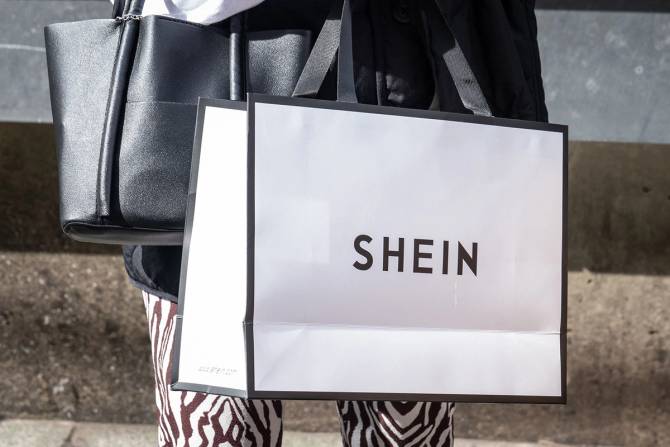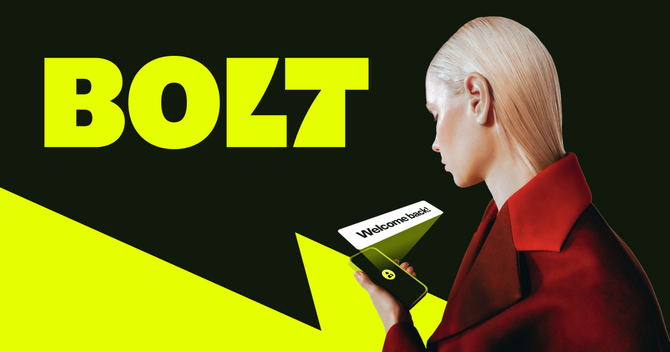Hey there. The Christmas Tree Shops, the discount retailer founded on Cape Cod 50+ years ago, filed for bankruptcy last week, and said its closing up to 10 stores—including a Sagamore, Massachusetts, location with a thatched roof and windmill. They can take away the stores, but they’ll never take away the “Don’t you just love a bargain?” theme song replaying in our heads all day.
In today’s edition:
—Erin Cabrey, Katishi Maake, Jeena Sharma
|
|
Christopher Furlong / Getty Images
You might remember 2018 as the year of Harry and Meghan’s wedding or A Star Is Born memes. For the hemp industry, the passage of that year’s Farm Bill was the standout moment.
The bill removed hemp from the definition of marijuana in the Controlled Substances Act, legalizing industrial hemp as a crop. That meant farmers and producers in all 50 states could grow hemp—which the USDA defines as cannabis and cannabis derivatives that have no more than 0.3% THC—for commercial use, and import and export it across state lines.
The 2018 Farm Bill was a “great accomplishment” for the hemp industry, Jonathan Miller, general counsel at the US Hemp Roundtable (USHR), a hemp business advocacy organization, told Retail Brew. But some challenges quickly sprouted up.
- The FDA has yet to establish a regulatory framework for hemp extracts like CBD in food and dietary supplements, despite pledging to do so, leaving this up to individual states instead.
-
This delay in regulation also led to an oversupply, as farmers planted hemp crops without buyers for them.
Earlier this year, the USHR joined forces with two other industry groups to establish policy priorities ahead of the 2023 Farm Bill. The policy document, published last month, has since been signed by 31 nonprofit hemp organizations. It aims to “right those wrongs” since the 2018 bill, Miller said, by pushing the FDA to establish clear directives for CBD while also loosening hemp regulations.
Keep reading here.—EC
|
|
TOGETHER WITH ATTEST
Solve the 2023 riddle of where to advertise
|
Retail marketers have a lotta questions these days.
Which TV streaming services are my audience watching? Does anyone listen to radio anymore? How are Americans responding to a possible TikTok ban? 2023 is a total whirlwind, so what’s the trick to coming out on top?
You gotta hit the books and plan it out. Fortunately, Attest is here to help. They surveyed 1k US consumers to explore year-on-year changes—and what they mean for your 2023 media planning. Say hello to sharp insights and eye-opening data.
Want more deets? Attest loaded this bad boy with tons of top tips to help you make the most of the opportunities, from analysis of the latest media trends to insights on the broader market. You don’t wanna miss out on this invaluable resource.
Map out 2023 with Attest’s report.
|
|
It’s that time again when we highlight those companies in the nascent stages of (hopefully) breaking through in the retail industry.
Trade ya: Nuw is a new application that launched just ahead of Earth Day, and it puts a new spin on resale. Rather than trading in clothes for cash or credit, Nuw has a marketplace where sellers can exchange their old clothing for new-to-them pieces on the app. Founder Aisling Bryne describes it as a “clothes as currency” business model that does away with the logistical headaches of traditional resale or thrifting.
- Users earn a gold or silver “coin” for each item they upload, which can be redeemed for an item on Nuw for $0.99, plus shipping.
- Bryne said the platform has an 83% recirculation rate, and more than 34,000 items have been exchanged to date.
The secondhand market is expected to reach $70 billion by 2027, according to ThredUp’s latest resale report.
Take it to the bank: Securing financing can be difficult for small businesses just getting off the ground or dealing with a ~challenging~ economic environment. Fintech startup Setscale secured a $9.5 billion seed round to help small businesses do just that.
Keep reading here.—KM
|
|
Yuichi Yamazaki/Getty Images
Alongside a variety of new designs and frequently changing styles over the years, Chinese fast-fashion brand Shein has also garnered criticism for alleged labor violations and environmentally unsustainable practices.
But as the brand closes in on a potential initial public offering in the US later this year, bipartisan lawmakers are pushing the SEC to look into accusations against the retailer that claim “mistreatment of Uyghurs, a marginalized group in China.”
Shein, meanwhile, has denied all allegations. “We have zero tolerance for forced labor,” a company spokesperson told CNBC, claiming it is “committed to respecting human rights and adhering to local laws and regulations in each market we operate in.”
The retailer has also been on a mission to change its public perception. Earlier this year, for instance, Shein highlighted its ongoing incubator program for emerging and independent designers from various backgrounds, not just to deflect criticism for copying designs, but to establish itself as a supporter of diversity and inclusion. And to combat claims that it generates waste, it has intensified its investment in thermal digital transfer and supply chain technologies to reduce water waste and excess inventory.
Keep reading here.—JS
|
|
|
Fashion fades, but e-comm is eternal. So you need a strategy that navigates changing trends *and* still earns you loyal customers. Bolt x YouGov’s new Lifetime Fashion Report walks you through building a timeless e-commerce strategy while hitting all of your biz goals. This way to retail insights.
|
|
Today’s top retail reads.
Taking credit: Eying profitability, BNPL players like Klarna and Affirm are tightening their credit standards. (the Wall Street Journal)
Life in the bike lane: On-demand delivery from apps like DoorDash and Uber Eats is booming in New York, but the city doesn’t have the infrastructure to support it. (CNN)
Returning the tables: After years of free returns, more and more retailers are tacking on return fees. (The Atlantic)
Spring cleaning leading: Need a little guidance when it comes to your leadership game? The Brew’s Leadership Accelerator delivers that and more. Apply now using code SPRING100 for $100 off tuition.
Calling all carts: Abandoned shopping carts = billions lost in annual revenue. But don’t fret: Retention.com powers SMS and email flow revenue by up to 10x. Book a demo for 20% off your annual subscription.* *This is sponsored advertising content.
|
|
-
Coty extended its contract with CEO Sue Y. Nabi through 2030 as it eyes a possible second listing on the Paris Stock exchange.
-
Under Armour’s fiscal fourth-quarter revenue beat estimates, though the company’s annual sales and profit forecasts were below expectations amid lower demand and higher profit margins.
-
ThredUp is dual listing its stock on the Long Term Stock Exchange.
-
The National Retail Federation lowered its forecast for consumer products imports for the first half of 2023.
-
Foot Locker hired Nike exec Blanca Gonzalez as SVP and general manager of WSS.
|
|
A roundup of our favorite retail multimedia content from across platforms this week—from TikTok to Twitter. We’re keeping you hip, and you’re welcome.
RT: Erewhon is known for its aisles of emerging CPG brands. One Twitter user snapped a photo of the crowded cooler featuring a rainbow of trendy beverages at the retailer’s Venice, California, location, asking which can stand out from the crowd. (@lordcpg on Twitter)
Double tap: Last week, we shared a post from the winner of Nike’s creator competition. This week, check out how Nike created 31,000 unique digital AF1s for its upcoming NFT drop to beta users of .Swoosh. (@dotswoosh on Instagram)
Triple tap: New York pizzeria Roberta’s stepped in to help a customer find a missed connection after a paper plate with honey flew into—and got stuck on—a man’s face while she was eating at the restaurant. (Roberta’s Pizza on Instagram)
Make your day: Since Bed Bath & Beyond filed for bankruptcy last month, it’s been running closeout sales, and one TikToker has been going to the store’s New York City location daily (11 days and counting!) to track the slowly increasing discounts and even more slowly decreasing inventory levels. (@ilovebread_ok on TikTok)
Link up: Last year, we wrote about how sizeless jean brand Sene is using AI to make custom clothing more accessible. Founder Ray Li took to Linkedin to share about his company’s first profitable quarter, and the story behind it. (Ray Li on LinkedIn)
Tune in: Founder Fokke de Jong shares the story behind building Dutch men’s fashion brand Suitsupply. (How I Built This on Spotify)
|
|
Catch up on the Retail Brew stories you may have missed.
|
|
|
Written by
Erin Cabrey, Katishi Maake, and Jeena Sharma
Was this email forwarded to you? Sign up
here.
Take The Brew to work
Get smarter in just 5 minutes
Business education without the BS
Interested in podcasts?
|
ADVERTISE
//
CAREERS
//
SHOP 10% OFF
//
FAQ
Update your email preferences or unsubscribe
here.
View our privacy policy
here.
Copyright ©
2023
Morning Brew. All rights reserved.
22 W 19th St, 4th Floor, New York, NY 10011
|
|








